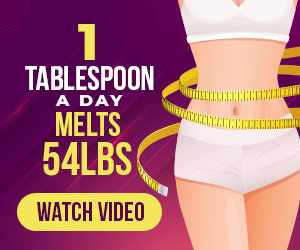The ultimate guide to weight loss is a comprehensive approach that combines healthy eating, regular physical activity, and lifestyle changes. It’s important to remember that there’s no one-size-fits-all solution to weight loss, as individual factors and preferences vary. Always consult with a healthcare professional before starting any weight loss program.
Photo by Jonathan Borba on Unsplash
Ultimate Guide
Set Realistic Goals:
- Define clear, achievable goals for your weight loss journey. It’s essential to have specific targets in mind to stay motivated.
Create a Calorie Deficit:
- Weight loss is primarily about burning more calories than you consume. Calculate your daily maintenance calories and aim for a calorie deficit (typically 500-1,000 calories per day) for gradual and sustainable weight loss.
Healthy Eating:
- Focus on a balanced and nutritious diet. Consume a variety of whole foods, including fruits, vegetables, lean proteins, whole grains, and healthy fats.
- Control portion sizes to avoid overeating. Be mindful of your calorie intake.
- Limit or eliminate processed foods, sugary beverages, and high-fat, high-sugar snacks.
Meal Planning:
- Plan your meals in advance to make healthy eating more convenient. Prepare meals at home whenever possible to have control over ingredients and portions.
- Incorporate smaller, more frequent meals to maintain steady energy levels.
Stay Hydrated:
- Drink plenty of water throughout the day. Sometimes, thirst is mistaken for hunger.
Regular Exercise:
- Include both cardiovascular exercise (e.g., walking, running, swimming) and strength training in your routine to boost metabolism and build muscle.
- Strive for a minimum of 150 minutes of moderate-intensity aerobic activity or 75 minutes of vigorous-intensity aerobic activity each week, coupled with muscle-strengthening exercises on two or more days.
Track Your Progress:
- Keep a journal to track your food intake, exercise, and weight loss progress. There are many apps available for this purpose.
Get Adequate Sleep:
- Not getting enough sleep can result in weight gain. Make it a goal to get 7-9 hours of quality sleep every night.
Manage Stress:
- Emotional eating may be a consequence of high stress levels. Incorporate stress-reduction techniques such as meditation, yoga, or deep breathing exercises into your routine.
Support and Accountability:
- Seek support from friends, family, or a weight loss group to help you stay motivated.
- Consider consulting a registered dietitian or nutritionist for personalized guidance.
Be Patient:
- Weight loss takes time. Don’t expect immediate results, and remember that slow, steady progress is more sustainable.
Avoid Fad Diets:
- Steer clear of extreme or unsustainable diets that promise quick fixes. They often result in weight regain once you return to normal eating habits.
Celebrate Milestones:
- Celebrate your achievements, no matter how small, to stay motivated.
Also Read: The Paleo Diet for weight loss or the caveman diet
Remember, weight loss ultimate guide is a gradual process, and it’s essential to focus on overall health and well-being rather than just the number on the scale. Make sustainable changes to your lifestyle, and be kind to yourself along the way. If you have any underlying health conditions or are taking medications, consult with a healthcare professional for personalized guidance.
Weight Loss Supplement Ultimate Guide



Weight loss supplements products are designed to help people lose weight by either suppressing appetite, increasing metabolism or promoting fat breakdown. Important to note that the effectiveness and safety of weight loss supplements can vary widely, and not all are supported by robust scientific evidence. Before using any weight loss supplement, consult with a healthcare professional, as they can guide what might be appropriate for your specific situation. Here are some common types of weight loss supplements:
Also Read: Weight Loss: Your Best Strategies, Maintenance, and Tips for Success



- Green Tea Extract: Green tea contains compounds like catechins and caffeine, believed to boost metabolism and promote fat oxidation. It may have a modest impact on weight loss.
- Caffeine: Caffeine is a natural stimulant that can increase alertness and energy expenditure. Commonly found in weight loss supplements due to its potential to suppress appetite and enhance fat burning.
- Garcinia Cambogia: This tropical fruit extract is often included in weight loss supplements. Some studies suggest it may inhibit fat production and reduce appetite, though results are mixed.
- Conjugated Linoleic Acid (CLA): CLA is a type of fatty acid found in meat and dairy. Claimed to reduce body fat, but its effects on weight loss are modest, and it may have some side effects.
Also Read:
Ultimate Guide Supplement Products
- Hydroxycut: Hydroxycut is a brand that offers various weight loss products containing ingredients like caffeine and plant extracts. Associated with some side effects in the past.
- Raspberry Ketones: A chemical found in red raspberries. Believed to increase the breakdown of fat in the body, but the evidence is limited.
- Orlistat (Alli, Xenical): This is an FDA-approved prescription medication that inhibits the absorption of dietary fat. It can lead to modest weight loss but often comes with gastrointestinal side effects.
- Prescription Weight Loss Medications: Medications like phentermine, bupropion/naltrexone, and liraglutide are prescribed for weight management in certain situations. They work by affecting appetite and metabolism. These should only be used under the supervision of a healthcare professional.
- Fiber Supplements: Fiber supplements like glucomannan can help promote a feeling of fullness and reduce calorie intake. They can be a helpful part of a weight loss plan.
- Herbal Supplements: Various herbal supplements, such as hoodia, aloe vera, and bitter orange, have been marketed for weight loss. However, the evidence supporting their efficacy is often weak, and some can have adverse effects.



It’s important to exercise caution when considering weight loss supplements ultimate guide. Many products are not regulated by the FDA, and the quality and safety of these supplements are questionable. Additionally, they are not a replacement for a healthy diet and regular exercise. Weight loss ultimate guide best achieved through a combination of balanced eating, physical activity, and sustainable lifestyle changes.



Always consult with a healthcare professional before starting any weight loss supplement, and make sure to disclose any existing health conditions or medications you may be taking. They can help you determine the potential risks and benefits and provide guidance on a safe and effective weight loss plan.
Pros and Cons Weight Loss Supplement
Weight loss supplements’ ultimate guide comes with both potential benefits (pros) and risks (cons). It’s important to carefully consider these factors and consult with a healthcare professional before using any weight loss supplement. Here are some of the pros and cons associated with weight loss supplements:
Pros:
- Appetite Suppression: Some weight loss supplements can help reduce appetite, making it easier to control calorie intake and avoid overeating.
- Increased Metabolism: Certain supplements may boost metabolic rate, leading to more calories burned during rest and physical activity.
- Convenience: Weight loss supplements can be a convenient option for those looking for additional support in their weight loss journey.
- Potential Weight Loss: In some cases, weight loss supplements may lead to modest weight loss when combined with a healthy diet and regular exercise.
- Energy Boost: Many weight loss supplements contain stimulants like caffeine, which can increase energy levels and alertness.
- In Some Cases, Scientific Support: A few weight loss supplements have some scientific studies supporting their effectiveness, though results can vary.
Cons:
- Limited Efficacy: Most weight loss supplements have limited evidence supporting their effectiveness. The weight loss achieved with supplements is often modest and may not be long-lasting.
- Safety Concerns: Many weight loss supplements can have adverse side effects, including increased heart rate, high blood pressure, gastrointestinal issues, and sleep disturbances.
- Lack of Regulation: The supplement industry is not as strictly regulated as pharmaceuticals, which means that the quality and safety of weight loss supplements can vary widely.
- Risk of Dependency: Some weight loss supplements that contain stimulants can be habit-forming, leading to dependency and withdrawal symptoms.
- Inadequate Long-Term Data: The long-term safety and effectiveness of most weight loss supplements are not well-established due to limited research.
- Not a Substitute for Healthy Habits: Weight loss supplements should not used as a replacement for a balanced diet and regular exercise. They are most effective when used as a complement to a healthy lifestyle.
- Health Risks: Some weight loss supplements can pose health risks, particularly for individuals with certain medical conditions or those taking medications. It’s important to consult with a healthcare professional before use.
- Expense: Weight loss supplements can be costly, and their cost can add up over time.
- Potential for Scams: The weight loss supplement market is rife with scams and false claims. Consumers need to be cautious and choose reputable products from established manufacturers.
Conclusion
In conclusion, weight loss supplements’ ultimate guide has both potential benefits and risks. They should not be used as a primary or sole method of weight loss, and their use should approached with caution. It’s essential to focus on a well-rounded approach to weight management, including a healthy diet, regular physical activity, and lifestyle changes. Before using any weight loss supplement, consult with a healthcare professional to assess its appropriateness for your circumstances and health goals. Always alerted on our ultimate guide for weight loss


Leave a Reply